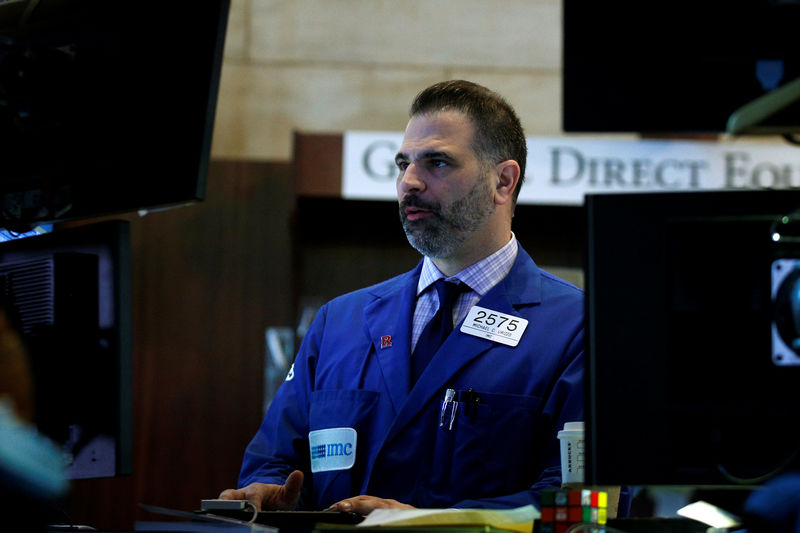By Herbert Lash
NEW YORK (Reuters) - Global equity markets eased on Monday as investors awaited the first meeting later this week between U.S. President Donald Trump and Chinese President Xi Jinping, while the dollar gained on a positive backdrop of rising U.S. interest rates.
European shares touched a 16-month high before paring gains as they tracked Asian shares higher in the wake of upbeat manufacturing data out of Europe and China.
Shares on Wall Street fell as investors assessed how Trump's protectionist stance on trade will play out during meetings with Xi slated for Thursday and Friday.
Trump held out the possibility, in an interview published on Sunday by the Financial Times, of using trade as a lever to secure Chinese cooperation against North Korea.
"The market will be anxious and will be eager to glean whatever they get from those talks," said Andre Bakhos, managing director at Janlyn Capital in Bernardsville, New Jersey.
"The market was a little taken aback by Trump's comments recently about the meeting," he said.
The pan-European FTSEurofirst 300 index fell 0.57 percent to close at 1,494.48, shedding earlier gains, and MSCI's gauge of stocks across the globe shed 0.31 percent.
German manufacturing growth hit almost a six-year high in March, Markit's Purchasing Managers' Index (PMI) showed. Manufacturing activity in France and Italy also rose, adding to signs of a pick-up in the global economy.
On Wall Street, the Dow Jones Industrial Average fell 74.98 points, or 0.36 percent, to 20,588.24. The S&P 500 lost 10.85 points, or 0.46 percent, to 2,351.87 and the Nasdaq Composite dropped 25.61 points, or 0.43 percent, to 5,886.13.
The dollar rose amid investor expectations U.S. rates will continue to rise this year, even as Federal Reserve officials have said the Fed is in no rush to tighten monetary policy.
"U.S. fundamentals remain solid, may improve further still, if the president can make some quick progress on tax reform," said Shaun Osborne, chief FX strategist at Scotiabank in Toronto.
U.S. construction spending and manufacturing data were positive overall, affirming the economy's steady improvement and helping lift the dollar. Construction spending grew 0.8 percent to $1.19 trillion, the highest since April 2006.
The dollar index rose 0.16 percent, with the euro up 0.19 percent to $1.0669. The Japanese yen gained 0.45 percent versus the greenback at 110.89 per dollar.
Oil prices were under pressure as a rebound in Libyan oil output over the weekend offset upbeat economic data from Asia that suggested robust energy demand from the region.
Benchmark Brent futures fell 41 cents to settle at $53.12 a barrel. U.S. West Texas Intermediate crude futures settled down 36 cents at $50.24 a barrel.
Manufacturing data showed factories across much of Asia posted another month of solid growth in March.
The Bank of Japan's "tankan" survey showed business sentiment improved, albeit slightly less than expected.
Benchmark 10-year U.S. Treasury yields touched more than one-month lows as a reallocation into U.S. government debt at the start of the quarter boosted demand and drove up prices.
Benchmark 10-year notes last rose 14/32 in price to yield 2.3443 percent.
Yields on German government bonds, regarded as among the safest assets in the world, tumbled after a subway explosion in St. Petersburg, Russia, boosted demand for safe-haven debt just as a reduction in the European Central Bank's asset purchases kicked in.
Ten-year Bund yields hit a one-month low of 0.275 percent.
